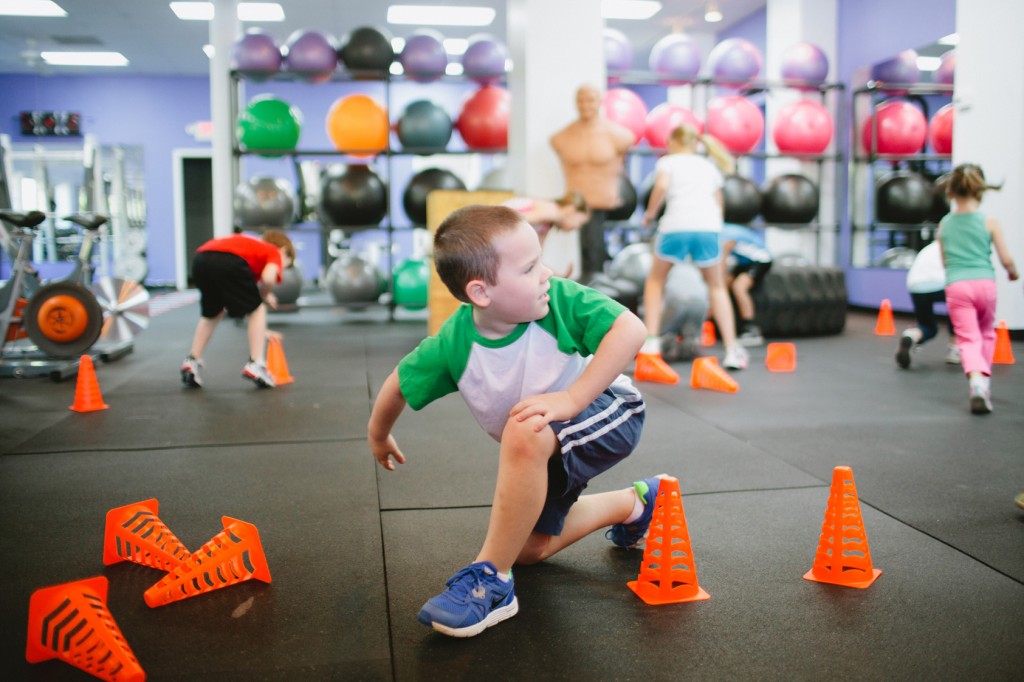Many parents I know have big arguments with their children regarding the time spent in front of an iPad, PlayStation, television, etc. There is nothing wrong with playing video games; I did that as a kid and still do it, but it is vital that children engage in a regular physical activity. Kids are becoming more and more unfit. The American Heart Association has found that children’s fitness levels are steadily declining. Thirty years ago, a child could run a mile 90 seconds quicker than children today.
I recommend that kids participate in any sports they enjoy — and as much as possible. They should try a lot of different physical games before they decide to specialize in one particular activity.
And kids should lift weights too.
I know that letting kids lift weights is a controversial topic. Parents may not like the idea of their sons and daughters participating in resistance training. They think that “strenuous resistance exercise may interfere with growth” or that “letting kids lift weights is very unsafe.” It is the opposite.
Injury rates per 100 participation hours in various sports (extract from the NSCA “Journal of Strength and Conditioning Research – Relative safety of weight lifting and weight training”)
Compared to soccer, which kids love to play, supervised weight training is safe. Consider that resistance training does not necessarily mean using heavy barbells. For kids, there are other very useful tools to add some strength such as bands, sandbags, medicine balls, etc.
There are many benefits of resistance training in youth, such as:
– increased muscular strength and endurance
– increased bone density and healthy joints
– better sports performance
– increased resistance to sports injuries
– increased confidence, discipline, etc.
When I was growing up, I loved to participate in many different kinds of sports, primarily soccer and hockey, but I lacked the physical strength to excel in those activities. My skill level was good, but I was physically too weak to perform well. A lack of strength also means a lack of speed and power. Another benefit of getting stronger is that your child will automatically run faster and jump higher because power and speed are related to strength (and of course, genetics).
Looking back and objectively analyzing the situation, a lot of time and money was wasted in useless physiotherapy and special equipment to correct my weak posture, ankle, and wrist problems when I was a child. A good coach with the understanding of helping me to get stronger while making it fun could have changed many things. It is not that difficult. But 20 years ago, times were different. At least I understand these things now and can help the kids of today not have to go through all of that (ask my mum!).
One of my trainees is 11-year-old Kavin. During one workout, we work on his squat technique with a 4kg kettlebell as resistance. He is training in soccer, taekwondo, and basketball and once to two times per week we are working on his strength, movement quality, balance, speed, and agility. He is very diligent, and he understands the importance of making his legs stronger to improve running, jumping, etc.
With him, I use two different, yet very simple assessment tools to ensure we monitor his progress accurately.
One is the Vertical Jump to measure his anaerobic power output and the Pro-Agility test to improve reaction time, coordination, balance and acceleration when changing directions rapidly.
The process of getting him stronger will not only help his sports performance but boost his confidence as well. Then another benefit of strength training is psychological wellbeing. A stronger child is a more confident child, and that can make life easier for them. Because we are not just training the body, we are also training the mind.
And don’t forget to have fun, fun, and fun!
Of course, an hour of fitness training with an 11 year is not only lifting weights. There are other skills we should learn when we are young which get harder to learn later such as agility, jumping, sprinting, etc. It would also be boring for the child to stick to weights only as the most important factor in a child’s training program is for them to have fun! If the training is not fun, they will not enjoy it and stop altogether, NO matter how beneficial it is.
When and how to start?
I am sure you agree that your child will benefit from a supervised and proper fitness and strength training program. Their age makes little difference. In kids strength training we are differentiating between biological age (maturation status) and chronological age (time since birth). Your child can start right now, and the program will be more based on the child’s development than the actual age.
You just have to find a qualified and trustworthy coach who is experienced and enjoys working with kids, as well as someone who understands the process and program. Then you can enjoy observing your child getting physically and mentally stronger. Also, you can enjoy a quiet hour when they are out of the house, and they come back more relaxed.
Editor’s note: This article is by Jamal Younis, a strength conditioning specialist and personal trainer based in Bangkok; it has been reprinted here with the author’s permission. For more information on kid’s training programs or upcoming boot camps for kids, please contact Jamal here.
Register your email address here and we’ll notify you when a new article gets uploaded.
















